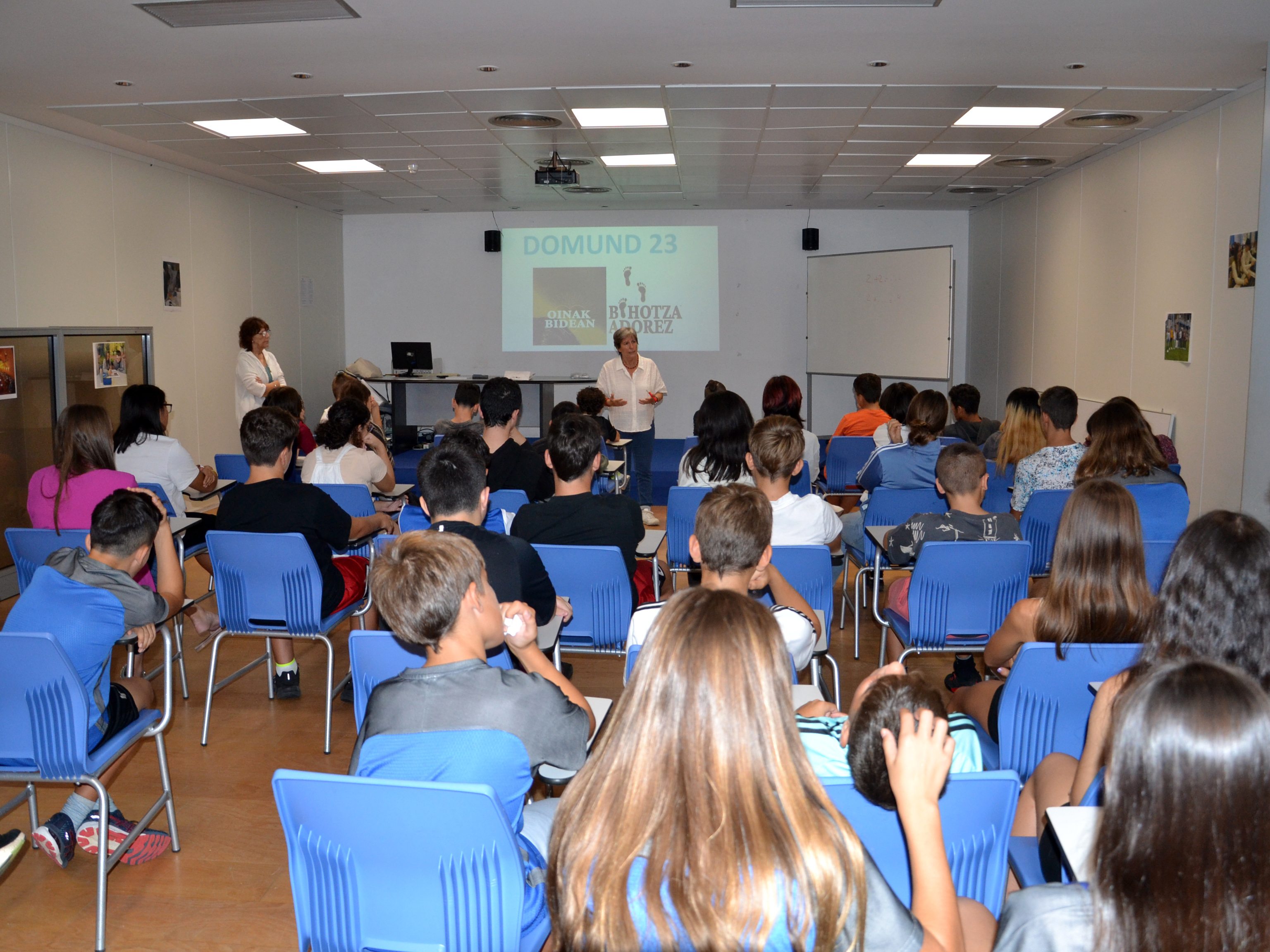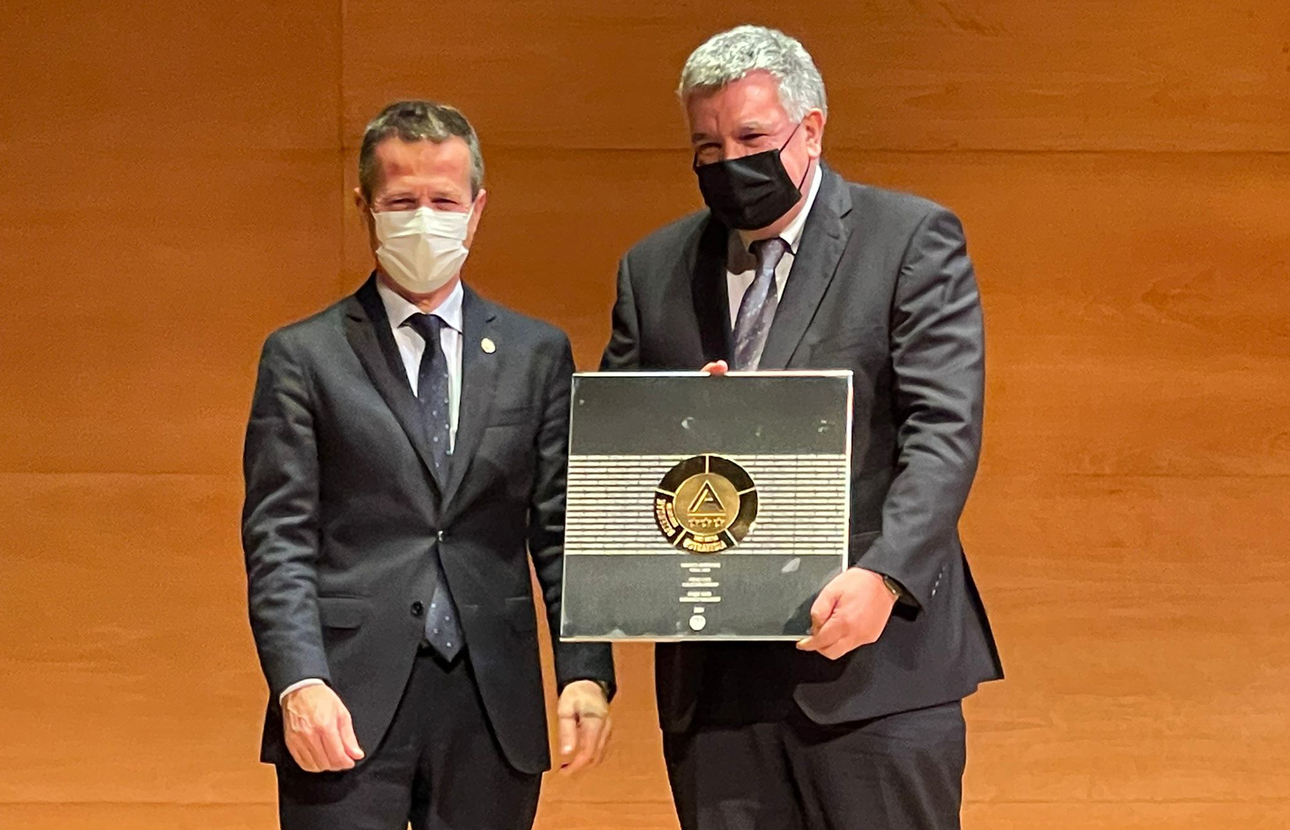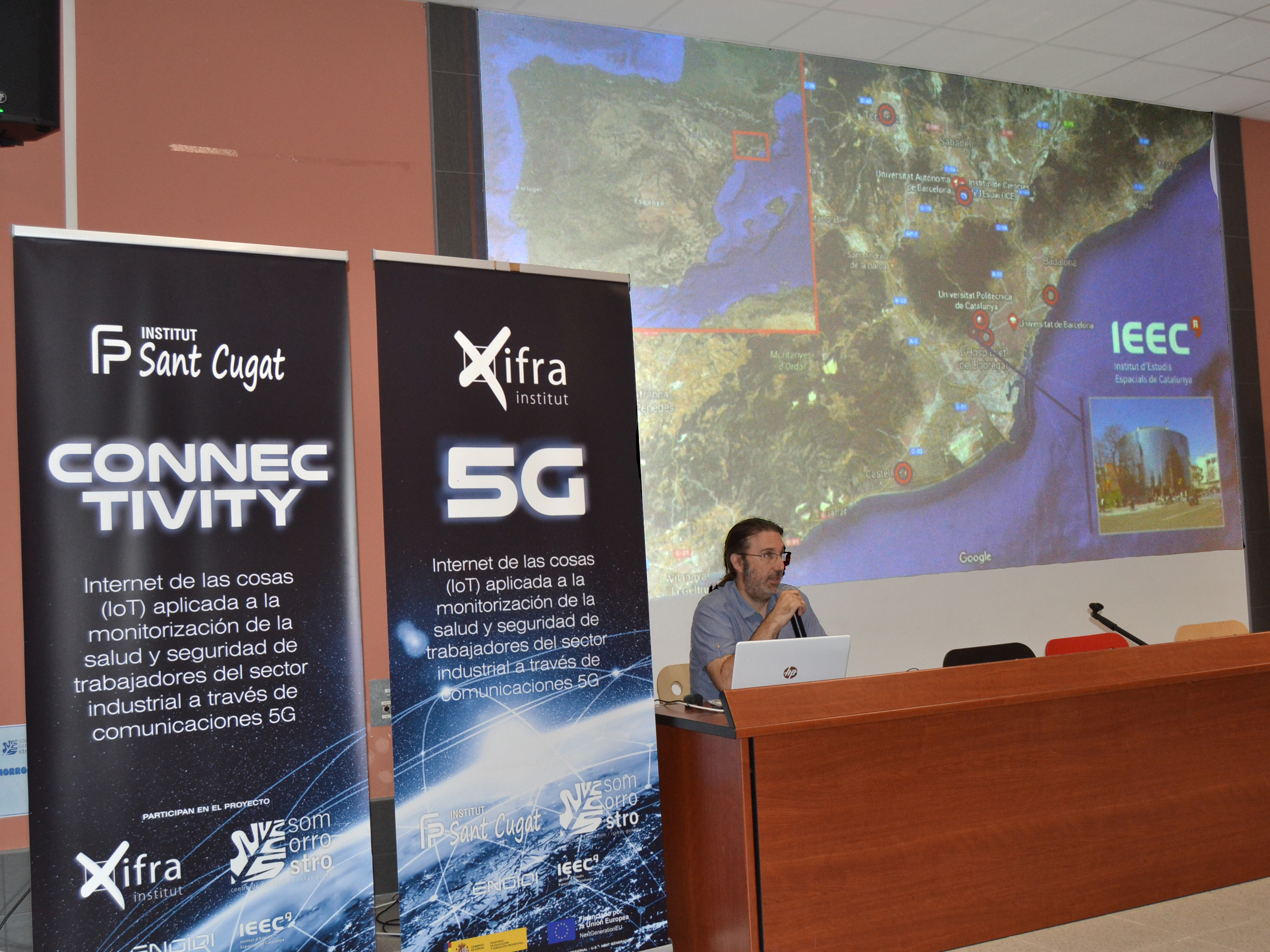This talk is part of the activities organised by the delegation of Diocesan Missions on the occasion of the celebration of the DOMUND this coming Sunday and within the framework of the 75th anniversary of the Basque Diocesan Missions.
On the occasion of the celebration of the World Mission Sunday and within the framework of the 75th anniversary of the Basque Diocesan Missions, today we have had the testimony of the missionary Isabel Matilla in our centre. Her missionary commitment began in 1985, when she arrived in Ecuador, in Manabí, a country where she has been for two periods of her life and where she has been continuously for the last 15 years. Accompanied in the talk by Merche Aguirre from the Basque Diocesan Missions, she wanted to share her experience in the Latin American country with our second year ESO students. Merche highlighted the work done by diocesan missions in those parts of the world where people lack our resources and possibilities, praising the work done by the missionaries who leave their homes, their families,… to help in these parts of the world.
“I had the desire to get involved against injustice from a young age, thanks to a teacher who brought me closer to the world of inequality“, said Isabel, who has been working in Ecuador since 1985. On her arrival, she found a country that was very rich in resources such as oil, cocoa, bananas, corn, etc. A country that exports these raw materials, but does not have the capacity to transform them and where its population does not have access to basic goods and often has to emigrate.

Today, it is a country dominated by drug mafias and where people live in fear, especially in the cities. However, she lives in the countryside, in the middle of the jungle, and her work has two main focuses. On the one hand, she teaches at the public agricultural university in Calceta, Manabí, where she teaches economics to the children of farmers, and on the other, she works with local communities. There he focuses on projects that aim to help the farmers to make better use of the materials they grow, to be able to process them themselves and sell them under better conditions, so that they are not exploited by large companies.
With the help of the Diocesan Missions, they have bought machines for drying cocoa, silos for storing maize, they have started the production of animal feed and with it the breeding of chickens,… all aimed at enabling them to better exploit all their resources and to be less dependent on foreign companies.
Isabel described with great enthusiasm the work she does for others in Ecuador and called us to reflect on the fact that “the most valuable thing we have is our passport, because it gives or takes away opportunities without having done anything, just for being born in one part of the world or another”.
Photos of the lecture in this link
















